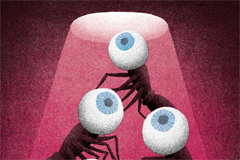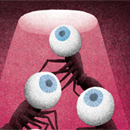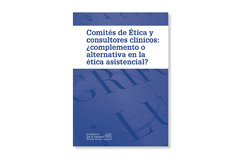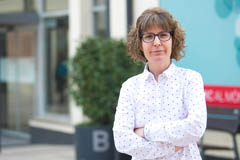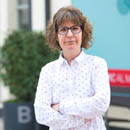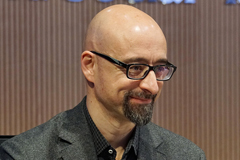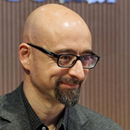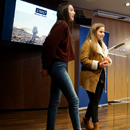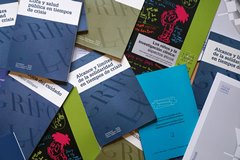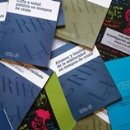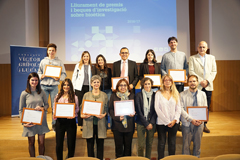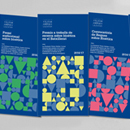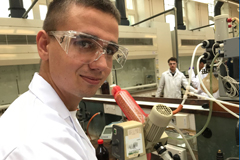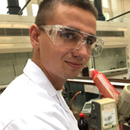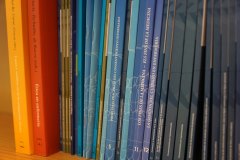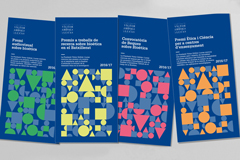The Foundation ranks fourth in an evaluation of the leading Spanish foundations.
The report "Construir Confianza 2017" (building trust), compiled by Fundación Compromiso y Transparencia, puts the Víctor Grífols i Lucas Foundation in fourth place in its ranking of the most transparent organizations in the family foundation category. This report evaluates the transparency and governance of Spanish foundations, based on the information published on their websites.
The foundation's position has improved over the last year. However, it is not included in the top rankings because it does not publish an auditor's report, which this study deems essential, although none of the circumstances specified by the legislation in this area would require the foundation to produce audited accounts.
This appointment will support the activities of the Grífols Foundation Chair of Bioethics
Busquets holds a PhD in philosophy and is a qualified nurse. She is also a professor of ethics at the School of Health Sciences at University of Vic-Central University of Catalonia. She is a member of the Professional Ethics Committee of the Official College of Nurses of Barcelona, secretary of the Research Ethics Committee at UVic-UCC, and an advisor to a number of ethics committees in Catalonia. She has also worked with the Borja Institute of Bioethics (URL) and has directed the journal, Bioètica & Debat.
She will combine her teaching duties with coordinating the chair in bioethics, including responsibility for promoting training activities and research projects.
Interview with Salvador Macip
He delivered the Josep Egozcue lecture on advances in CRISPR, a subject on which the Foundation recently published a monograph.
Salvador Macip is a research doctor and senior lecturer in the Department of Molecular and Cellular Biology at the University of Leicester. In May 2017 he delivered the Josep Egozcue lecture on advances in CRISPR, a subject on which the Foundation recently published a monograph. And on 20 December he gave the keynote address at the Ethics and Science Awards Ceremony, with the title: "Playing at being God: the ethical and social challenges of 21st century medicine."
What applications does CRISPR currently have in humans?
The CRISPR technique is a method for editing genetic material in a huge variety of ways. Although there is still a lot of work to be done before this goal can be achieved, its potential applications are clear. Research is currently focusing on editing animal cells. In humans, research is more complicated as – in addition to the technical challenges – such work entails ethical considerations, but the first steps towards what could become genome editing in embryos have already been taken. Although we are still very much in the early stages and we need a thorough debate before the technique can be used to treat human embryos, CRISPR already has a number of potential therapeutic applications. These would involve extracting cells from an organism, modifying them genetically, and injecting them back into the body to reactivate the immune system or to cause cells to start functioning again when, for various reasons, they have ceased to do so. This approach is very promising and should be the first step when modifying cells within the human body.
How do you think the application of the technique will develop over the short, medium and long term?
It's difficult to make precise predictions, because progress is exponential and the developments of the last few years have been dramatic. It's possible that within the next five years we will see the standardized application of CRISPR in hospitals based on the cell extraction and modification technique mentioned above. The next breakthrough, perhaps a decade away, would enable treatment within the body, while a challenge for the future is genome editing of embryos. However, as noted above, this is not solely a scientific question but also entails an ethical debate for which we are not yet fully prepared.
Who do you think should lead this ethical debate?
The debate should start with the scientific community, as they have the best understanding of the opportunities the technique offers and the tools available for its application. However, there is a difference between leading and monopolizing. This is a discussion that must involve society as a whole. Although the technical details are complex, the challenge for scientists is how to make this comprehensible. Once this challenge has been overcome, the debate should be opened up, bringing together experts in bioethics, politicians, civil society organizations and so on. It may also be necessary to conduct this debate locally, as it will be very difficult to reach a global consensus.
When should this debate begin?
We don't have a lot of time, because the technique is almost ready to be applied. Without regulation, it is possible that some techniques will be applied before a consensus has been reached. At the same time, we cannot simply discard all the opportunities offered by such techniques, out of fear that they may not be used correctly. So we need to find a balance that allows us to enjoy the benefits while avoiding malpractice, and the only way to do this it through a thorough debate.
What should the starting point be?
We need to start by deciding who we need to involve in this debate, and by identifying what we can do to include those who are not yet ready to participate. It is essential for us to reach agreement on how far we want to go with genome editing techniques, and to prevent their misuse. It is vital that governments be able to establish guidelines and issue regulations with regard to their use. While we are not yet in a position to treat human embryos, we do need to make progress in other areas, where practical application is almost a reality.
As a researcher, what do you think has been the most important contribution of scientific advances in genome editing?
The major achievement of recent decades was the genome revolution. Since the start of this century, we have had a map of the whole human genome. Current research is advancing very rapidly due to the genetic information available in public databases. This is what underpins the advances we are seeing in techniques such as CRISPR or in the field of personalized medicine. This has transformed both the scientific and the medical scenario. It is becoming faster and cheaper to read genomes, and we are implementing this in medicine to offer patients the most suitable treatments.
And the negative side of all this progress?
The main threat is the one that has occurred throughout history, whenever there is major scientific progress: the exacerbation of the differences between rich and poor. This was what happened with antibiotics – perhaps the most dramatic scientific achievement in the history of humanity – which led to a significant increase in life expectancy in a very short time. Initially, however, these medicines were not available to the whole population and in many countries people continued to die of infectious diseases. The challenge, with regard to genome editing, is to ensure that this gap, while inevitable, is bridged in the shortest possible time. The solution is not simple, but nor should we refuse to apply a new technology unless it is accessible to everyone. That would not be just, either from an ethical or from a moral perspective. If we have the capacity to apply improvements then we are duty-bound to do so, but we need to avoid a scenario in which ‘post-humans' and traditional humans live side by side; where the inhabitants of some countries are still struggling to overcome diseases which have been eradicated in the developed world.
What role should young people play in this scenario?
I regularly give talks on bioethics, genetics, cancer and ageing to groups of young people aged between 11 and 18. We tend to shield and infantilize people of these ages, but the reality is that they are far more capable of making value judgements and expressing their opinions on these issues than we often assume. It's important to involve them in the debate as early as possible. If we educate young people both to understand problems and to evaluate opportunities, and we teach them to take reasoned decisions that go beyond the opinions to be found in their immediate family or sociocultural environments, humankind will benefit and we will take a step towards a better future.
First prize: "Natural thought: kindness and hard work" Institut de Sentmenat, Barcelona.
Second prize: "Robo-ethics: learning robotics to help" Col·legi Mare de Déu dels Àngels, Barcelona.
Third prize: "Mission to Mars" IES A Xunqueira II, Pontevedra.
Special mention:
"Inter-generational solidarity and caring for the environment. Environmental ethics project" Escola Sant Gregori, Barcelona.
New genome editing techniques such as CRISPR/Cas9 open up a whole range of possibilities for human health. They can be used to correct genetic defects to cure disease, and also to modify individuals and entire plant or animal species. Who should be responsible for determining their use? Do we need to establish limits?
New genome editing techniques such as CRISPR/Cas9 open up a whole range of possibilities for human health. They can be used to correct genetic defects to cure disease, and also to modify individuals and entire plant or animal species. Who should be responsible for determining their use? Do we need to establish limits?
The CBC has published two articles by researchers supported by Foundation research grants.
The most recent issue of the bulletin of the Bioethics Committee of Catalonia includes two articles by researchers supported by Foundation bioethics research grants.
The article by Júlia Martín, of the University of Barcelona, is titled La presa de decisions anticipades en adolescents (Taking advanced decisions in adolescents). Júlia received a bioethics grant in October to develop a project related to narrative bioethics and the model of humanizing care for hospitalized minors.
Oriol Yuguero, of the University of Lleida, published La promoció de la empatia, fonamental per reduir el burnout mèdic, element clau de la qualitat assistencial (Promoting empathy: fundamental for the reduction of medical burnout and a key element in the quality of care). Oriol was awarded a grant in 2014 for a project exploring empathy in physicians and nursing staff in the Lleida Health Region.
Experts from a wide range of fields took part in a workshop organized with the Probitas Foundation to discuss how the crisis of recent years has affected the mental health of children and young people. This monograph includes the papers. Only available in Spanish.
The jury of the Víctor Grífols i Lucas Foundation Bioethics Prizes and Grants has announced the winners of this year's awards.
RESEARCH GRANTS:
Júlia Martin of the University of Barcelona for: "Horizons Project. Methodological proposal for gamification of hospital pedagogy, based on narrative bioethics and model of humanizing care for hospitalized minors."
To the team led by Beatriz Campillo of Hospital de la Santa Creu i Sant Pau for: "Constructing and determining psychometric properties of a questionnaire to evaluate perception of respect and maintenance of dignity in hospitalized patients."
Hugo Viciana of Instituto de Estudios Sociales Avanzados (IESA-CSIC) for: "Modes of disagreement in Bioethics: the public and the experts."
Sabel Gabaldón of the University of Barcelona for: "Transsexuality in children and adolescents. Ethical aspects of classification and treatment."
Ion Arrieta of University of the Basque Country/Euskal Herriko Unibertsitatea for: "Psoriasis and executive autonomy: a proposal for improved patient compliance with psoriasis treatment."
To the team led by Christian Villavicencio of Caredoctors for: "Planning Advance Decisions (PAD) and communication in patients with chronic, complex illness and chronic, advanced illness."
SENIOR HIGH SCHOOL PRIZE:
First prize to "Ethical dilemmas of a long life" by Joana Krausse, student at Instituto Premià de Mar.
Second prize to "Bioethics and care homes for the elderly" by Sara Clota, student at Instituto Canigó de Almacelles.
Third prize for "Born out of necessity: bioethics of the medicine baby" by Wiam Koubissdel, student at Instituto Vinyes Velles de Montornès del Vallès.
AUDIOVISUAL PRIZE:
Prize for the documentary "Només era un gos" (Just a dog) by Irene Domènech and Haydée Vila, produced by Mc Guffin Estudio Audiovisual.
The prize received at the BIYSC allowed them to attend the London meeting
Míriam Condeminas and Jordi Jumilla were recognized by the Fundació Víctor Grifols i Lucas and Fundació Catalunya-La Pedrera at the Barcelona International Youth Science Challenge 2016.
Míriam Condeminas won her prize for a study coordinated by the Institute of Biomedical Research (IRB), entitled "Insulin and diabetes: how science saves lives", a project that reviews scientific progress in the fight against diabetes and looks at how new treatments have improved the quality of life of people with this disease. Jordi Jumilla's winning entry, "Development of a robotic hand to enhance deaf people's communication", was coordinated by La Salle Campus Barcelona. It explores the possibility of designing a robotic hand capable of reproducing sign language and of translating messages in other languages into sign language.
The prize enabled both students to take part in the prestigious London International Youth Science Forum (LIYSF) programme, held in London from 26 July to 9 August. They had the chance to attend scientific lectures, visit leading R&D centres, present their own work, and also to indulge in some tourism. For Míriam, highlights of her time in London included the opportunities for personal and professional enrichment. She also recalled visits to research centres in the United Kingdom, and presenting her work in public, which exposed her to different points of view and gave her the chance to benefit from the insights of others.
For Jordi, particular high points included a lecture at CERN (European Organization for Nuclear Research), and a visit to Oxford University. Both students agreed that one of the most important aspects of their time in London was the opportunity to make friends with students from across the world, drawn from a wide range of cultures.
Jordi Jumilla is currently completing a double honours degree at UPC in Mathematics and Physical Engineering, and although he has not yet decided what he wants to do after he graduates, he is certainly drawn to the field of scientific research. Míriam Condeminas is about to start the second half of her Chemistry degree at the University of Barcelona, and is very clear that she wants to pursue a career in research.
Chair of Bioethics publishes study of informed consent.
The British Journal of Clinical Pharmacology has published a research study by the Grífols Foundation Chair of Bioethics at the University of Vic. The article includes the key findings of a study into the need to obtain informed consent in writing from participants in pragmatic, low-risk clinical trials.
The research has been published online with open access. Read the article here.
The study has also been published at BMC Medical Research and European Journal of Clinical Pharmacology
There have been a total of 26 submissions for the senior high school prize, 42 audiovisual projects, and 42 applications for research grants.
The jury will assess all of the projects over the summer, and the winners will be announced during the first fortnight of October. Please also note that submissions are still open for the Ethics and Science Award for Teaching Centers. The final date for the submission of entries is 30 October.



